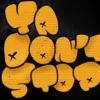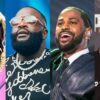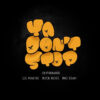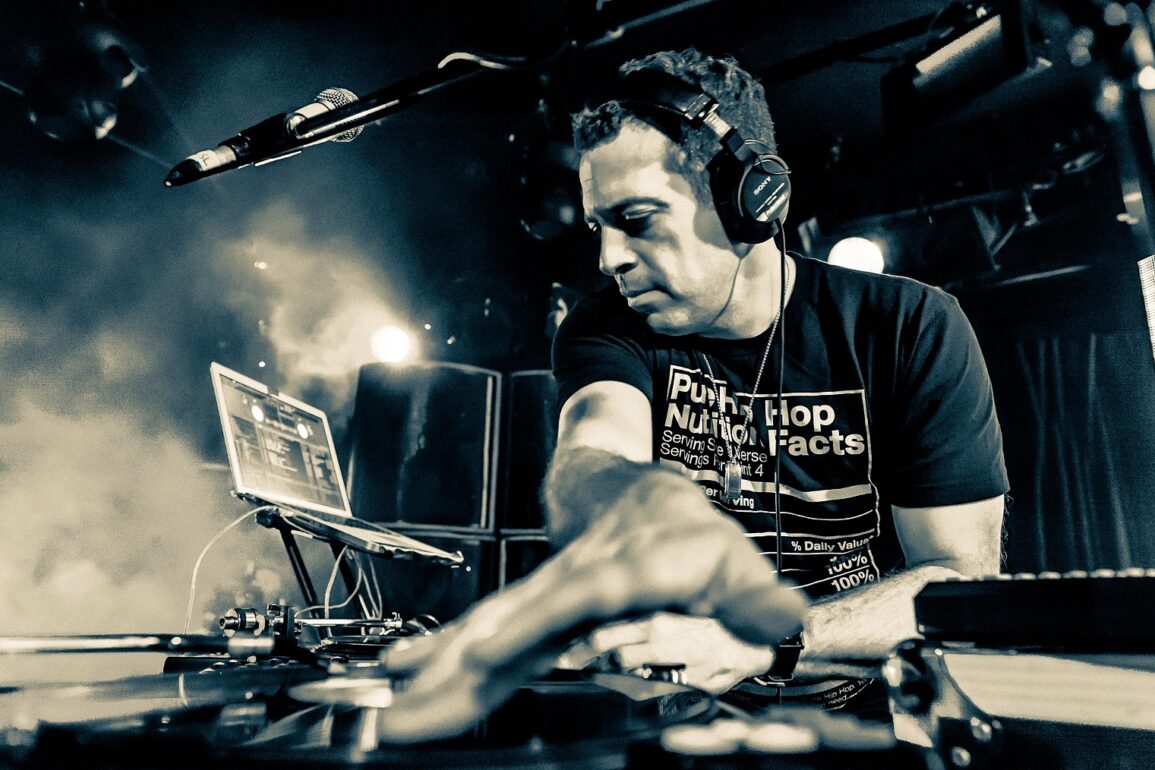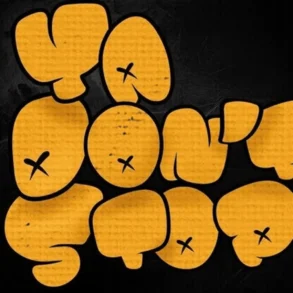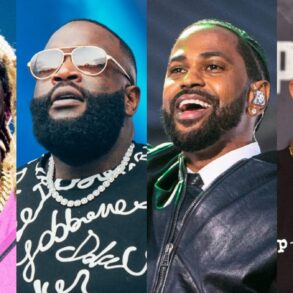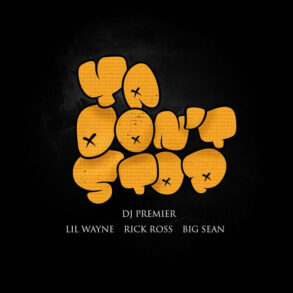Every time Z-Trip returns to the Valley, it’s more than just an opportunity to revisit his old stomping grounds.
Back in the ’90s, the Brooklyn-born and Phoenix-raised superstar DJ, turntablist and mashup king made his bones in the local scene. Z-Trip regularly performed at Valley clubs and raves as a solo artist or member of the renowned Bombshelter DJs — the influential turntablism trio that also featured Emile and Radar.
Z-Trip says his connections with Phoenix have helped drive him creatively every time he’s come back to town.
“The thing that’s amazing about playing in Phoenix is it gives me the ability to stretch since the people there know my roots and give me a certain allowance to dig in, come up with more interesting stuff and push boundaries more, because those guys were there in the old days for all the trials,” Z-Trip says. “So when I come home, I get to dig into my bag a bit more than I would if I were somewhere else.”
So when Z-Trip performs at Walter Where?House on Saturday night, friends and fans can expect to hear new material while he does his thing with a pair of turntables.
That’s because the record decks that Z-Trip wields and works into his sets — whether he’s at a club or backing up longtime collaborator LL Cool J — are essentially musical instruments and the scratches, chirps and flares he lays down are his notes.
Just like an ace songwriter or composer, Z-Trip uses the art of turntablism to create musical magic, crafting mixes and sets with structure, pacing and energy that ultimately lead listeners on an epic journey.
Phoenix New Times recently spoke with Z-Trip about the artistry of turntablism, how his time in the Valley helped prepare him for superstardom and whether the Bombshelter DJs will ever reunite.
Phoenix New Times: This past New Year’s Eve, you shared a stage with LL Cool J in the middle of Times Square on national television. Where does that rank as a life experience and a career highlight?
Z-Trip: Well, it’s incredible because the thing is, the stuff I’ve done with him has been really amazing and keeps evolving. It was our second time doing Times Square (on New Year’s Eve), which is wild to even say. To do it once is incredible, but to do it a second time is equally as wild. It’s just great to be able to push the art of DJing and turntablism and what I do into the masses in the way I’ve been able to do it. And doing that with LL, he’s a perfect person to open the doors and welcome that in as well, because that’s what he also comes from, so it’s not a foreign place to be in when he and I are sharing the stage and where we’re able to do what I think a proper MC and a proper DJ can do. It’s all rooted and based in proper hip-hop culture, which is a DJ and MC getting down in front of a crowd. So he really opens that up and allows that to be a focal point.[embedded content]
What was some of the feedback you’ve gotten from the experience?
I saw something in the comments of one of the online videos when I got to see the performance a couple of days afterward. There were all these shots of my hands scratching, which I’m very aware of trying to do. Anytime I’m with LL on TV or onstage I make sure there are shots of my hands on the turntables because it’s such an important component to what I do and I want to share that with people. When I’m playing festivals, for instance, camera people will come up and be like, “Hey, can I get shots of you?” And they’re usually shots from down looking up, and I’m always like, “No, get up here with me so you can shoot at my hands.”
So one of the comments in the comment sections referred to it being like the moment when people saw Herbie Hancock at the (Grammy Awards in 1984) and he brought out Grand Mixer D.ST to scratch on stage for that song, “Rockit.” And that was the first time many people ever saw a DJ physically scratching on TV in a live setting. And it blew all our minds. So the fact that I was doing this stuff on national TV with LL and we’re up there celebrating 50 years of hip-hop and there’s a moment where the DJ gets to shine and I’m scratching, that moment means a lot to me.
Laura Austin” class=”uk-display-block uk-position-relative uk-visible-toggle”>
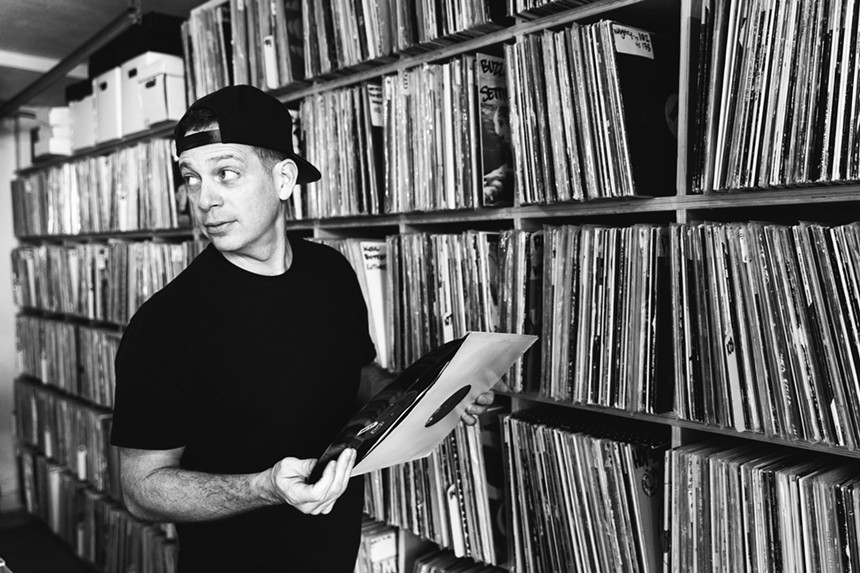
Z-Trip with his extensive record library.
Laura Austin
Is turntablism still considered to be a niche form of DJing and hip-hop?
That’s a good question. I think it depends on who you ask because, to a degree, it’s very well documented and it’s very well established. But I think also for people who don’t know about turntablism, it can still technically be a brand-new thing. And I think in the context of being on everybody’s TV set in America that was watching it, however, many millions of people that was, it’s like how many of them have any clue what’s going on up there? So to see it’s like, “Oh, okay, cool.” I think everyone’s got a perception of what a DJ is or what a DJ does to a degree in this day and age. But I don’t know if they understand the nuance or the level of someone who’s a master of the craft of the turntable in the art form versus someone who just maybe got some gear a couple of years ago and only plays songs and doesn’t work the equipment (like an instrument). They just play on the equipment, if that makes sense.
So I think there are still plenty of people out there who don’t know (turntablism) and are discovering it, you know what I mean? It’s very interesting. But there’s also, on the flip side, I’m finding that there are fewer and fewer people who do this kind of DJing because it’s not necessarily something that is the most accessible. To do this, you have to put in a lot of work. And it’s learning how to use this stuff as an instrument as opposed to just playing it. And I think most people when they look at DJing or they get into DJing, they’re probably taking a route from a different angle where it’s like they see somebody play some music on a big stage at a festival and they’re like, “I want to do that.” And if that’s your inroad, it’s not a bad thing. I think it’s the bridge over to what we do.
[embedded content] Is it hard to convince people turntablism is a legitimate form of musicianship compared to merely DJing?
I think it can be, but it depends on the person you’re having the conversation with. Some people are a bit more open to it and understand the level of complexity, and some people aren’t. But again, if you were to say, ask a pilot, “Hey, how do you fly a plane from here to there?” And they go, “I just push this in and you press some things, and you fly from there.” But if you drill down into all the instruments and all the things that are going on up there, you’d start to understand the level of complexity and you’d probably have a better appreciation for it. I think it’s kind of the same thing with DJing.
Some people just look at it and go, “Yeah, this is what they do.” But I think there’s always going to be someone who wants to drill down and get into the idiosyncrasies of how to DJ and scratch and want to understand what each button does and then it opens up their understanding or appreciation for (the art of turntablism). And, ultimately, as much as I wave the banner for turntablism, I’m also not someone who will shit on somebody else for not appreciating this or not understanding it. Not everybody does. I appreciate the nuance of players and that whole thing, and some people get it, some people don’t. But if you don’t, doesn’t mean you’re a bad person. It means you don’t have an appreciation for it.
New Times archives” class=”uk-display-block uk-position-relative uk-visible-toggle”>
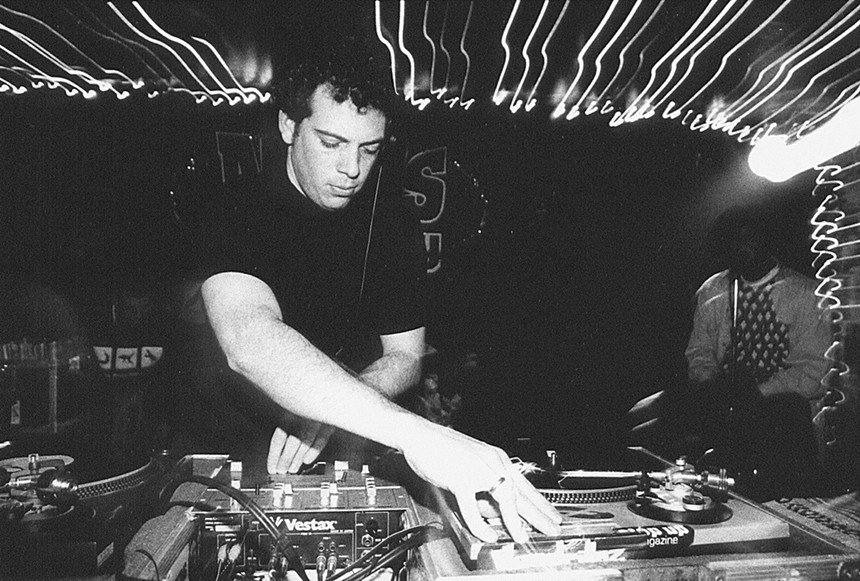
Z-Trip works the turntables at the original Nita’s Hideaway in Tempe back in the ’90s.
New Times archives
How did your years in Phoenix help prepare you for everything that came after?
I think the thing that’s interesting about Phoenix is I had this symbiotic relationship between New York and Arizona because I was between both places through my teens because of my parents’ divorce. I’d go back to New York and absorb all this music and bring it back in physical form on 12-inch records and then play this music in Phoenix for people who weren’t necessarily exposed to it. And it was incredible because I got to see people experience this stuff in a way.
And we got to build a scene and become part of a scene of people that were really into different music and different tastes. And they were curious about these new things that were happening around the planet, different scenes, different sounds, whether it was hip-hop, drum ‘n’ bass, house music or rave music at the time. And the thing that was really great about Phoenix was because we were pretty void of cutting-edge musical connection, the people that had a finger on that pulse, there was a group of us, and we weren’t really broken into factions so much as we were part of a collective of people who were moving and shaking in Phoenix’s (scene).
What was that like?
We’d all go to each other’s parties and support each other. And so the house (music) guys knew the techno guys who knew the hip-hop guys who knew the drum ‘n’ bass guys and it was like everybody was connected and knew each other. And that to me was a thing where I think it helped shape the sound of being all-inclusive and being open-minded to other styles and figuring out how to blend and mix and live. For me, it was about saying “How can I DJ at all the parties? How can I bring some of my flavor to the rave? How can I bring some of my flavor to the hip-hop clubs? Better yet, how can I bring some hip-hop to the rave? How can I bring some rave to the hip-hop world?” Just mixing and matching the things I felt were some of the better songs or styles within each genre, and then trying to figure out how to incorporate them into any capacity.
Ramy Hosseinie” class=”uk-display-block uk-position-relative uk-visible-toggle”>
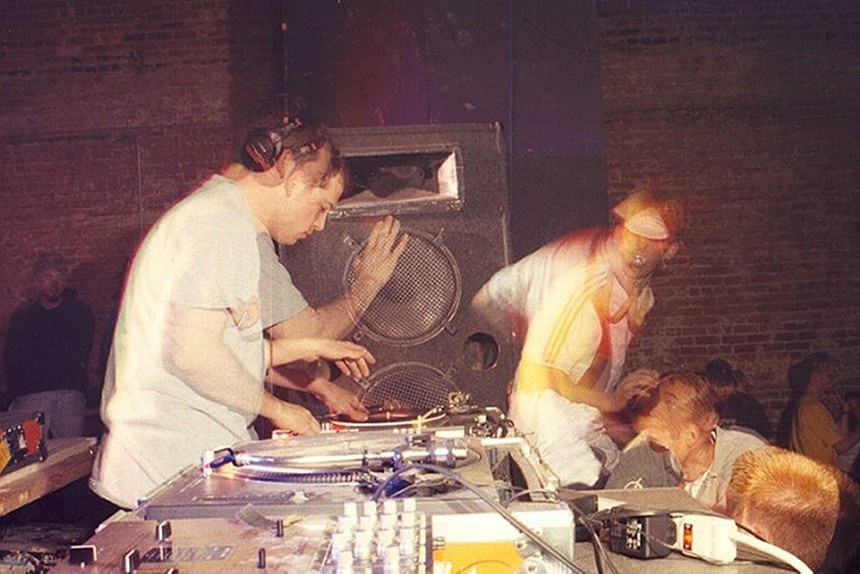
Z-Trip performs at a Phoenix rave in January 1999.
How busy were you back in those days?
Pretty busy, because my week would look like maybe I’d go and play whatever Bobby McGee’s or Jetz and Stixx or Axis/Radius or whatever the bottle service nightclubs were at the time, and then that same night, I’d go and DJ at a rave. And then the next day I’d do the hip-hop underground club, and then I might be over at the jazz thing over here, and then I might go see a heavy metal concert. And so it’s like me being able to bounce around and navigate through all these different places and potentially open for bands or whatever.
That meant that I had to have a huge palate for all styles of music and appreciate all styles. So when I’d go shopping for records, I’d hit the whole record store and buy things up. And so I think Phoenix was the breeding ground for me to have the opportunity to mesh into each style of music and each pocket, because I knew most of the people that were in each sub-genre if you will, and they would come to see me and I’d go to see them.
So there was a lot of cross-colonization. And because the Phoenix scene wasn’t huge, we just really tapped into being a collective and supported each other. And there were only small outlets: Swell Records, Zia Records, Stinkweeds and Eastside Records. There were only a couple of spots at the time where you could go and get these independent records or that would bring out independent artists. And I remember going and picking up Moby at the airport to go play at a rave or whatever those things were. It was like we were just striving and striving to do these parties and opening for a Tribe Called Quest and Wu-Tang (Clan) and all the shows from (now-defunct local hip-hop promoter) TMC Presents, opening for Biggie. All these things were huge for us because anyone who came through town, we were tapping into.
How likely is it that we’ll ever see a reunion of the Bombshelter DJs?
I’ve always said, “Never say never,” because I think it would be cool and I’d love to see it as much as I think everybody else would love to see it. But the thing is, what made Bombshelter was the fact that me, Emile and Radar spent four or five days out of the week together musically. I knew where each guy was, I knew what new records they had from day to day. They knew what new things I had from day to day. We would work on new routines and new bits. So it was very much like being in a band where wherever you’d play whatever you would do, you were all in lockstep with one another. And I think as time grew and we fell out of step with one another, I think we tried to do it a few times and people were there to support us, and we all wanted it to be what it was.
But I think the thing that I was always resistant to doing it again, is to just put three guys up on stage who haven’t hung out or played or vibed together musically would be a mess because you’ve got to kind of know how to anticipate. That was the thing. I could anticipate where Radar was going to go. I could anticipate where Emile was going to go, and vice versa. And I feel like that was what the magic was of we had these three different components that made this particular machine work. And while I don’t think it’s impossible, I think if we were to do it, it’s almost like spending a summer together.
I haven’t spoken to Radar in years. Emile and I speak from time to time, but musically, I have no clue where they’re at. It could be fun, but it would take a lot of prep work and a lot of dedication in my opinion, to get it to a point where I think all three of us would feel comfortable with sharing that because then there’s also the ability of once we got it to that point, we could probably go and do more stuff with it. But that requires a lot of time and energy, where 20 years ago, we all had plenty of time on our hands.
So do you think it will ever happen?
I mean, never say never, but I just feel like it would be such heavy lifting to do it correctly. And I wouldn’t want to go up there and tarnish what we had if we didn’t have something good to deliver. I don’t know if it would benefit. But I also want to say I would love to support those guys individually. If there was a Radar show happening, I’d be the first one to buy a ticket and go to it. If I knew that Emile was playing somewhere, he’d be the first person I’d go and watch play. Because the thing is, there’s been a big gap between I think I’ve stayed doing this, and I don’t know about the other guys and how often they would play or not.
Benjamin Leatherman” class=”uk-display-block uk-position-relative uk-visible-toggle”>
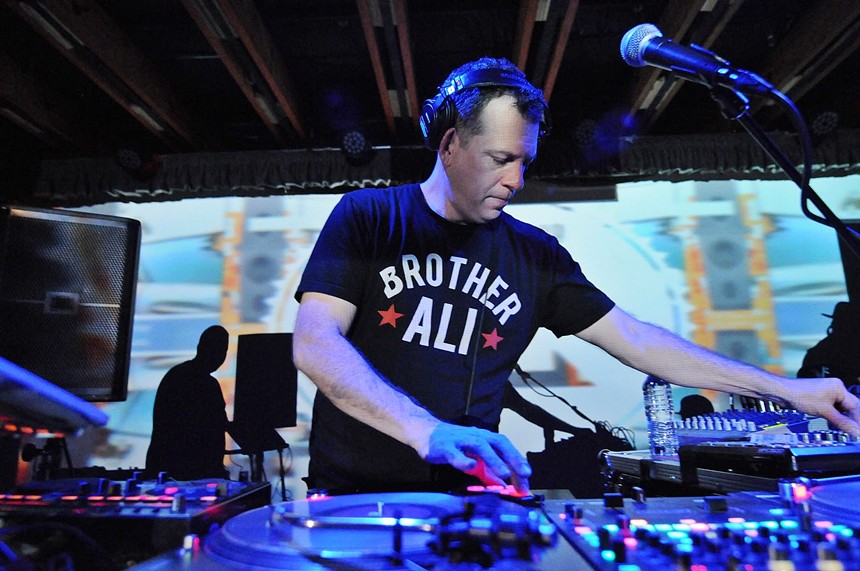
Z-Trip performing at the Crescent Ballroom in 2018.
Benjamin Leatherman
When you search online for “z trip” in recent years, two things come up: stuff about you and stuff about the zTrip rideshare service. Have you ever interacted with them before?
Originally when they started popping up, I think my team was like, “Let’s give them a cease and desist,” and we tried to squash that because it’s such an odd name. It’s not like “z-trip” is a common thing, at least I didn’t think it was. I think there was talk or some back and forth, but ultimately, they filed their trademark in transportation and mine wasn’t in transportation at the time. So I could’ve fought it, but it would’ve drug on and I was like, “You know what? At this point, people know who I am and I’m established and have been here for years. I don’t have the time or energy to combat that.” It just felt like a waste of time or energy. It was just like, “You know what, I thought this was a simple little side thing that would go away on its own.” At some point, I just gave up on trying to mess with it.
Now, once a month I get somebody who sends me a picture of it from wherever and I just laugh about it and go, “Yeah, whatever.” It’s funny because there are people like, “Wow, you have your own rideshare?” and make jokes about it. I’ve learned to tolerate it and I just take Lyft and Uber or whatever. (Z-Trip) is such a unique name, I never thought it would ever be in danger of being co-opted into something else.
Z-Trip. With Pickster One. 9 p.m., Saturday, March 2. Walter Where?House, 702 N. 21st Ave. Tickets are $25/$27 via seetickets.us. Visit Phoenix New Times’ concert calendar for more upcoming shows.
This post was originally published on this site be sure to check out more of their content.

